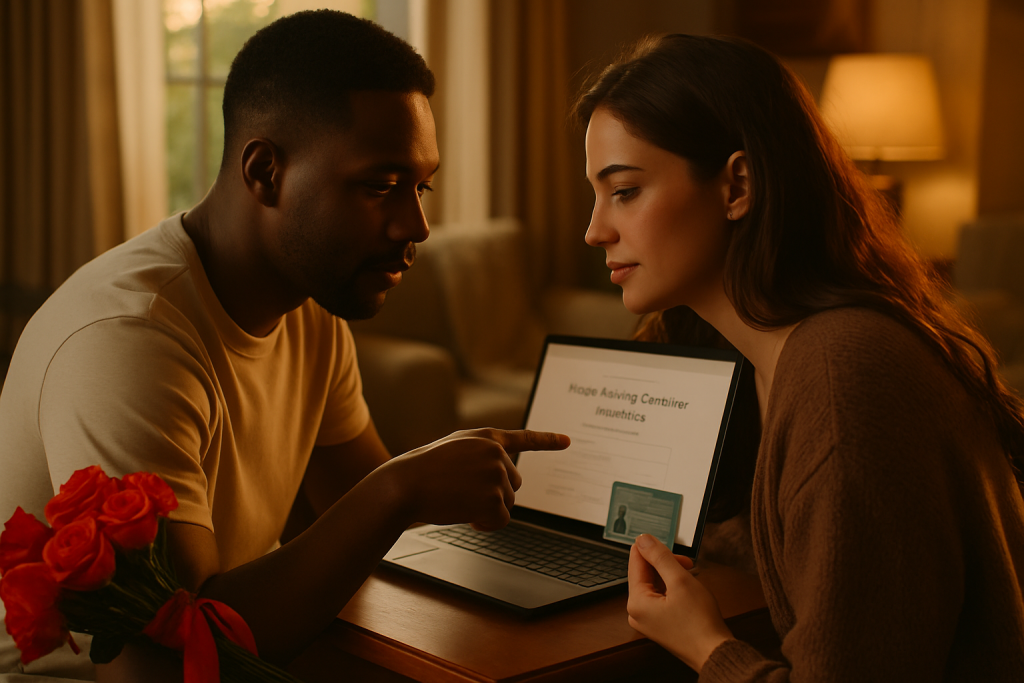In today’s digital era, the concept of getting married online has gained significant traction. Couples are increasingly considering virtual ceremonies, often conducted over platforms like Zoom. However, the legalities surrounding officiating a wedding over Zoom can be complex and vary by jurisdiction. Let’s delve into the key considerations to ensure your virtual wedding is both memorable and legally binding.
Understanding Virtual Weddings
A virtual wedding, commonly referred to as a Zoom wedding, is a ceremony where the couple and officiant are not physically present in the same location. Instead, the ceremony is conducted via a video conferencing platform, allowing participants to join from various locations.
Legal Recognition of Virtual Marriages
The legality of virtual marriages varies across the United States. Some states have embraced online weddings, while others have specific requirements or restrictions. For instance, Utah has been a pioneer in recognizing virtual marriages, allowing couples to obtain a marriage license and have the ceremony performed entirely online. This process is detailed on the Utah County Clerk’s FAQ page. ([virtualsamedaymarriage.com](https://virtualsamedaymarriage.com/blog/remote-marriage-faqs-everything-you-need-to-know-about-getting-married-online/?utm_source=openai))
State-by-State Variations
It’s crucial to understand the specific regulations in your state:
- Utah: Fully recognizes online marriages, allowing couples to obtain a marriage license and have the ceremony performed entirely online. ([virtualsamedaymarriage.com](https://virtualsamedaymarriage.com/blog/remote-marriage-faqs-everything-you-need-to-know-about-getting-married-online/?utm_source=openai))
- Illinois: Temporarily allowed online weddings under executive orders during the COVID-19 pandemic, requiring all participants to be physically present in Illinois during the ceremony. ([theamm.org](https://theamm.org/weddings-by-state/illinois/zoom-online-wedding-regulations?utm_source=openai))
- Florida: Does not recognize virtual officiants unless they are physically present with the couple during the ceremony. ([offbeatwed.com](https://offbeatwed.com/are-virtual-weddings-legal/?utm_source=openai))
Given these variations, it’s essential to consult local laws or legal experts to ensure compliance.
Role of the Officiant in Virtual Weddings
The officiant plays a pivotal role in ensuring the legality of the marriage. In some jurisdictions, the officiant must be physically present with the couple, while in others, they can officiate remotely. For example, in Utah, the officiant can be in a different location from the couple during the ceremony. ([virtualsamedaymarriage.com](https://virtualsamedaymarriage.com/blog/remote-marriage-faqs-everything-you-need-to-know-about-getting-married-online/?utm_source=openai))
Obtaining a Marriage License for a Virtual Wedding
Securing a marriage license is a fundamental step. Some states have adapted to the digital age by allowing online applications and virtual ceremonies. It’s advisable to check with your local county clerk’s office for specific procedures and requirements.
International Recognition of Virtual Marriages
For couples where one or both partners are from different countries, it’s vital to ensure that the virtual marriage is recognized internationally. Some countries may require additional documentation, such as an apostille, to validate the marriage certificate. For more information, visit our Immigration Support page.
Potential Challenges and Considerations
While virtual weddings offer convenience, they come with potential challenges:
- Technical Issues: Ensure a stable internet connection and familiarize yourself with the chosen platform to avoid disruptions.
- Legal Validity: As discussed, the legality varies by jurisdiction. Always verify local laws.
- Personal Touch: Some may feel that a virtual ceremony lacks the intimacy of a traditional wedding. Consider incorporating personalized elements to make the event special.
FAQs
1. Are virtual weddings legally recognized in all states?
No, the recognition of virtual weddings varies by state. It’s essential to consult local laws or legal experts to ensure compliance.
2. Can an officiant perform a wedding remotely?
In some jurisdictions, yes. For example, Utah allows officiants to perform ceremonies remotely. However, other states may require the officiant to be physically present with the couple.
3. How can I obtain a marriage license for a virtual wedding?
Some states offer online applications for marriage licenses. It’s advisable to check with your local county clerk’s office for specific procedures and requirements.
4. Will my virtual marriage be recognized internationally?
International recognition varies. Some countries may require additional documentation, such as an apostille, to validate the marriage certificate. It’s essential to verify the requirements of the specific country.
5. What are the technical requirements for a Zoom wedding?
Ensure a stable internet connection, a device with a camera and microphone, and familiarize yourself with the chosen platform to avoid disruptions during the ceremony.
Conclusion
Officiating a wedding over Zoom offers flexibility and inclusivity, especially in today’s interconnected world. However, navigating the legal landscape requires careful consideration and adherence to local regulations. At Virtual Same Day Marriage, we’re here to guide you through every step, ensuring your virtual wedding is both memorable and legally binding. For personalized assistance, feel free to contact us.



